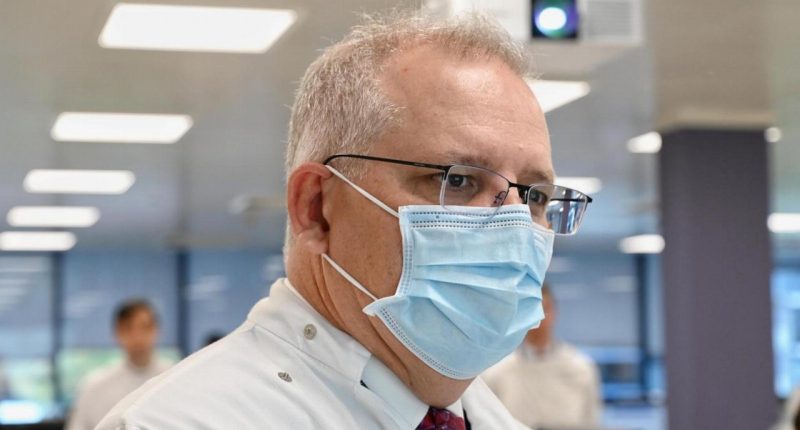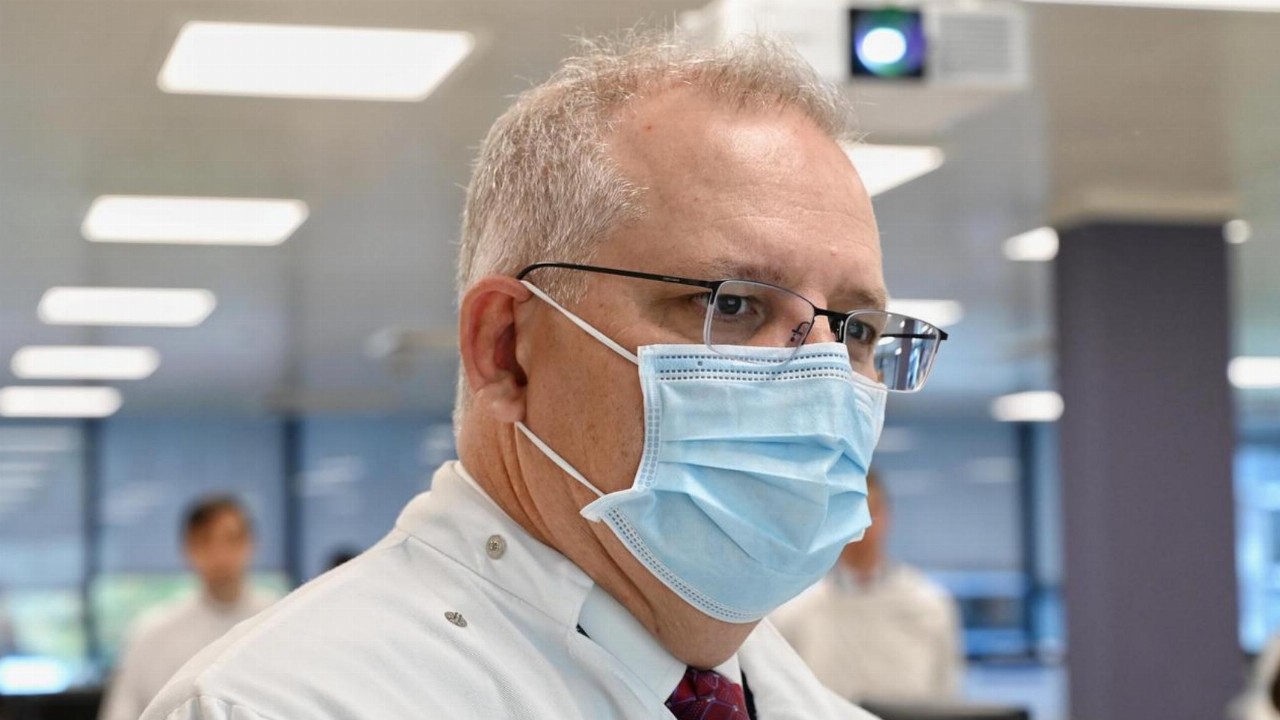- Prime Minister Scott Morrison is refusing to commit to a new timeline for rolling out the COVID-19 vaccine after the previous goal was abandoned
- The PM walked away from the initial promise of having most Australians vaccinated by October after a series of delays in receiving the vaccine
- The timeline was also dealt a blow after Australia’s main vaccine, created by AstraZenecca, was ruled out for under-50s due to a rare blood clotting risk
- Scott Morrison has conceded all Australians won’t be vaccinated this year, with only 1.16 million people actually vaccinated so far
- The delays to Australia’s vaccine rollout is estimated to wipe $1.4 billion from the economy, while Federal Labor argues the delays were avoidable
The Australian Prime Minister is refusing to commit to a new timeline for rolling out the COVID-19 vaccine after the previous goal was abandoned.
Scott Morrison walked away from his government’s initial promise of having most adults vaccinated by October after numerous delays in receiving orders of the vaccine.
In a statement on Facebook, the PM said his government hasn’t set a new target for completing the vaccine rollout due to the “uncertainties” involved in the plan.
“The government has also not set, nor has any plans to set any new targets for completing first doses,” he said in the online statement posted on Sunday.
“While we would like to see these doses completed before the end of the year, it is not possible to set such targets given the many uncertainties involved,” the PM explained.
“We will just get on with the job of working together to produce, distribute and administer the vaccines as safely and efficiently as possible,” he added.
Along with delays in receiving COVID-19 vaccines, the government’s timeline was also dealt a blow after Australia’s main vaccine, created by AstraZenecca, was ruled out for under-50s due to a rare blood clotting risk.
Instead, Australians under the age of 50 will now primarily be immunised with the Pfizer vaccine, with another 20 million doses of the jab ordered last week.
Those additional vaccines aren’t expected to arrive in Australia until the end of the year, and Scott Morrison concedes not everyone will be vaccinated in 2020 — with only 1.16 million people receiving their jabs so far.
Federal Labor’s Health Spokesperson Mark Butler argues the delays to the vaccination timelines were avoidable and the government should have entered into more deals with differing COVID-19 vaccine makers.
Meanwhile, an Australian policy institute has estimated the delayed vaccine rollout could cost the economy at least $1.4 billion.
The McKell Institute’s Executive Director, Michael Buckland, argues delaying the vaccine rollout means more lockdowns and restrictions.
“These delays will increase the chance of lockdowns and the economic costs that come with them,” he explained.
“Just as it was correct for the government to measure the economic impact of state lockdowns, so too should the government embrace the publication of clear information about the economic impact of its vaccination roll-out program,” he said.
“Australia’s vaccination program has failed to meet its targets and it’s incomprehensible that we will catch up. Our leaders need to accept the additional risks of delay and act,” the Executive Director added.







